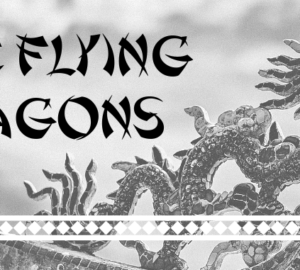A joint investigation by The Sydney Morning Herald, The Age, and the 60 Minutes alleged that Crown Resorts recruited tour operators linked to Asian organized crime syndicates to entice Chinese high-rollers into its Perth and Melbourne casinos.
Based on the data revealed by the investigation, the syndicate which is also known as “The Company” utilized bank accounts linked to Crown Resorts and high-roller rooms to facilitate money laundering.
Commonly referred to as “triads”, these syndicates have long been associated with tour operators or “junket operators” from China, generally tasked with bringing high-rollers in and out of casinos—Australian casinos included.
Junket operators have been tagged multiple times by local authorities for links to Asian organized crime groups, most commonly triad gangs. Although many such operators operate legitimately, the US government and industry analysts have maintained that junkets are a serious money-maker for Asian criminal syndicates—an assessment also shared by Australian law enforcement.
The Company, in particular, has been the subject of numerous allegations in the past two decades, for its connections to junket operators that work with Australian casinos.
The most compelling piece of evidence from the investigation is a 2013 interview between the Australian Federal Police and Roy Whye Wah Moo. According to Moo, he was approached by The Company due to his deep ties to Crown Resorts casinos. Moo said that his contacts at The Company called money laundering through casinos would be easier than using a bank.
The investigation also showed CCTV footage of Moo engaging in money laundering, dropping bundles of cash on a Crown Resorts casino cashier counter. The cash was later forwarded from Crown Resorts accounts via wire transfers to The Company members based in Hong Kong.
Moo, a former financial adviser from Doncaster East, Victoria, landed in jail for two years in December 2013. Moo admitted to using bank accounts linked to the Melbourne Crown Casino to launder nearly $700,000. Moo also represented the Ang Junket Group, a junket operator that helped Chinese high-rollers arrange for gambling trips to Crown casinos.
His arrest was the first confirmation of Australian law enforcement’s suspicion that Crown Resorts casinos were a key money-laundering channel for The Company.
The Australian government has also taken extraordinary efforts to ban online casinos as they believe them to be conduits for tax evasion and money laundering.
Junkets Help Gamblers Avoid Ban at Home
China is notable for its strict anti-gambling stance. Mainland China does not have any land-based casinos, although its Special Administrative Region of Macau is generally considered as the world’s gambling capital.
Due to these restrictions, high-rollers from China have been forced to rely on junket operators to gamble outside of their home country. These operators essentially handle everything their clients need to gamble in international territories.
Junket operators offer a means of transport and accommodation for Chinese high-rollers. In addition, they provide a personal concierge to look after the individual’s needs. Junket operators may also provide for players to be escorted from casino to casino or country to country, which is essential for high-rollers who need more security than average players.
Finally, high-rollers are given credit lines to gamble with. This gives players the liberty to gamble large sums of money without actually having it on their person. This is especially convenient in China, where bringing out significant amounts of cash is restricted by law.
At the end of the session, junket operators will settle any bets made by players on behalf of their client base. This allows for a more convenient, seamless process for high-rollers, as the bettor does not have to report on their losses or gains directly with any casinos or tax authorities, making them easier to hide from officials at home.
The relationship between junket operators and casinos is generally symbiotic. Casinos are dependent on high-rollers who spend massive amounts of money at their establishments, while junket operators are dependent upon the casino’s infrastructure to facilitate services for Chinese gamblers.
Crown Resorts’ “International VIP” Woes Continue
Crown Resorts has made several headlines in the past due to its aggressive approach to recruiting Chinese high-rollers into its casinos. The popularity of its Perth and Melbourne branches among Chinese gamblers launched a Chinese anti-corruption crackdown in 2016.
China convicted Jason O’Connor, the head of Crown Resorts’ “international VIP” program for promoting gambling, as well as 19 other employees. One of them, Jenny Jiang, reported that Crown Resorts helped fast-track hundreds of visas for Chinese citizens intending to gamble for huge stakes in Australian casinos.
Crown Resorts’ latest project is its Barangaroo casino and hotel in Sydney, set to open in 2022. The $2 billion project is aimed squarely at the high-roller market—especially Chinese gamblers, according to industry experts.
Crown Resorts has adamantly denied any links to money laundering over the years. A recent statement from the company noted that it has a money laundering framework in place. Its representative refused to speak on specific matters, citing an ongoing class-action suit.
The suit was filed after Crown Resorts’ share price plunged in 2016 due to the Chinese anti-corruption crackdown that ensnared some of its employees.
- How to Gain More from Filing a Personal Injury Claim - November 18, 2024
- How Jackpot Drops Change Online Casino Dynamics - November 13, 2024
- Inside the Mafia’s Grip on Casino Gaming - November 11, 2024









